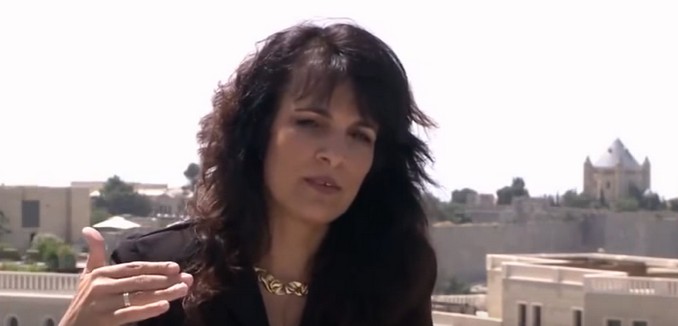After the killing of Dr. Fathi Shiqaqi, the head of Palestinian Islamic Jihad (PIJ) in Malta, widely attributed to the Mossad, Israel’s external security service, Israeli intelligence learned that PIJ operatives were not getting paid, neither were families of terrorists who had been killed or jailed.
Shiqaqi, apparently, had been the only one who knew how to access the terror group’s funds. His death virtually brought most of PIJ’s operations to a halt.
Meir Dagan, then the deputy head of the Prime Minister’s Counterterrorism Bureau, according to Harpoon, by Nitsana Darshan Leitner and Samuel Katz, “understood that regardless of intentions, cash was vital for continuing terror attacks.” In Dagan’s thinking, “if Israel focused on the money that fueled organizations that dispatched the suicide bombers, it could achieve long-term tactical and strategic results.”
Faced with widespread resistance towards his insight, it took a number of years until Dagan was able to implement his vision in full. But in 2001, following the failure of the Camp David talks, the beginning of the second intifada and the election of Dagan’s friend Ariel Sharon as prime minister, Dagan was finally in position to pursue his goal of fighting terror by taking the terrorists’ money.
With Sharon’s blessing, Dagan established a task force to target the finances of terror groups. He was very pleased that the computer-generated name for the task force was Harpoon.
Harpoon targeted terror funding in a number of different ways. There was Operation Green Lantern, in which 1,000 commandos descended on banks under the Palestinian Authority’s control and seized some 390 accounts associated with terror planners and financers from Hamas, PIJ and Fatah. The operation may have put a dent in the financing of Palestinian terror, but it was a diplomatic disaster, earning Israel a rare rebuke from United States President George W. Bush.
In 2002, Harpoon targeted Mohammed Rashid, Yasser Arafat’s financial adviser. A firm in South America got Rashid to invest in their products. The initial returns were so high that Rashid got his boss to invest. But at some point, the investment crashed, wiping out both the principal and interest. Arafat, who made a fortune skimming off foreign aid for himself that was meant for his people, reportedly lost over $100 million in the scheme.
Later, Harpoon pulled off a similar scheme with a Lebanese financier who was close to Hezbollah.
Harpoon may have targeted other terrorists in this fashion, Darshan-Leitner told The Tower, but the Harpoon agents she talked to “told us only things can be revealed” at the time.
But the task force didn’t just target the terrorists and their assets, it also targeted the terrorists’ facilitators. For example, Israel had a spy within the Lebanese Canadian Bank (LCB), which served as “a main conduit of monies from all sorts of illegal enterprises — like drug dealing and criminal activities in the United States, Europe, South America and West Africa— as well as the dispensing of those funds to the personal accounts of Hezbollah commanders or accounts used by Palestinian groups.”
The spy, known as Munir and several others provided Harpoon with data about LCB’s operations. Dagan saw this information as proof that LCB legitimized Hezbollah, protecting it from scrutiny. But then Dagan went to the U.S. with proof of LCB’s activities and urged the government to take action against it.
Though the U.S. Treasury and Justice departments were convinced by Dagan’s presentation, the State and Defense departments were more concerned about the consequences in Lebanon if a Lebanese bank was brought down.
However, Dagan wasn’t stopped by this setback and sought to make use of the intelligence that Harpoon had gathered. In this case, he went to the lawyers to get at LCB civilly. Dagan recruited Shurat Hadin, the legal organization founded by Darshan-Leitner, dedicated to using the law to get terrorists. Shurat Hadin recruited victims of Hezbollah terror to sue LCB in the U.S. After winning a significant victory in the New York Court of Appeals, which allowed LCB to be sued in New York because of its relationship with a New York-based bank, the lawsuit was filed in 2009 and is still ongoing.
LCB, however, suffered a fatal blow when, in 2011, the U.S. Treasury Department declared it to be a money-laundering institution. For a bank, this was a death sentence. No one would do business with it and later the U.S. Attorney for the Southern District of New York unsealed a $483 million civil forfeiture claim against the bank for its money-laundering. LCB was forced to cease operations in 2012 and its assets and debts were acquired by another Lebanese bank.
Harpoon operated as a task force during Dagan’s tenure, which ended in 2011. Once Dagan left “Harpoon was never the same.” Darshan-Leitner told The Tower that now Harpoon operates under Israel’s Ministry of Defense and most of its agents are soldiers, not spies.
Harpoon is a fascinating read, not just in terms of some of the more creative and daring schemes that Dagan orchestrated, but also in terms of giving insight into the man. It tells not just the story of Dagan’s and Harpoon’s successes—he ordered the IAF to target Lebanese banks during Israel’s 2006 war with Hezbollah, and two weeks later Hezbollah sued to end the war— but also the diplomatic failure of Operation Green Lantern. Harpoon also shows how using laws (or lawfare as it is sometimes called) can supplement traditional military efforts.
The book is a reminder of the terror and violence Israel has faced during the past twenty years and its varied, sometimes creative, approaches towards defending its citizens and defeating its enemies.
Meir Dagan passed away a year and a half ago, but his observation that depriving terrorists of their money cripples their ability to attack is a principle Israel continues to follow when it comes to fighting this ongoing threat.
[Photo: Shurat HaDin – Israel Law Center / YouTube]




